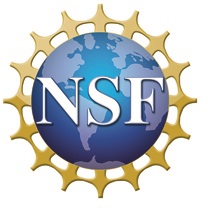NNI R&D Centers & Networks
A highly significant impact of the NNI has been the focused investment by NNI-participating agencies in the establishment and development of multidisciplinary research and education centers devoted to nanoscience and nanotechnology. NNI agencies have developed an extensive infrastructure of nearly 100 major interdisciplinary research and education centers and user facilities across the United States.
NNI Research and Development (R&D) Centers and Networks
Government funds for nanotechnology research have created some of the most sophisticated nanoscience laboratories in the world. In addition to providing the facilities, the NNI also has created programs to attract researchers across an array of disciplines to facilitate discoveries.
Centers and networks provide opportunities and support for multidisciplinary research among investigators from a variety of disciplines and from different research sectors, including academia, industry and government laboratories. Such multidisciplinary research not only leads to advances in knowledge but also fosters relationships that enhance the transition of basic research results to devices and other applications.
The multidisciplinary centers are listed below, organized by funding agency:
Department of Defense
 Institute for Nanoscience
Institute for Nanoscience
Naval Research Laboratory
Institute for Soldier Nanotechnologies
Massachusetts Institute of Technology, U.S. Army, and Industry
National Institutes of Health
National Cancer Institute’s (NCI) Nanodelivery Systems and Devices Branch
Cancer Imaging Program – Nanodelivery Systems and Devices Branch
Division of Cancer Treatment & Diagnosis, National Cancer Institute, National Institutes of Health
MSK-Cornell Center for Translation of Cancer Nanomedicine
Memorial Sloan Kettering and Cornell University
Center of Cancer Nanotechnology Excellence
Northwestern University
Center for Cancer Nanotechnology Excellence for Translational Diagnostics
Stanford University
Center for Multiple Myeloma Nanotherapy
Washington University
NCI Cancer Nanotechnology Training Centers
Predoctoral and Postdoctoral Training Program in Nanotechnology for Cancer Research
Johns Hopkins University
Postdoctoral Training Program in Cancer Nanotechnology
Northwestern University
Cancer-Translational Nanotechnology Training Program
Stanford University
Carolina Cancer Nanotechnology Training Program
University of North Carolina at Chapel Hill
Cancer Nanotechnology Training Program
University of Texas MD Anderson Cancer Center and Rice University
National Institute for Occupational Safety and Health
Nanotechnology Research Center
National Institute of Standards and Technology (NIST)
 NIST Center for Nanoscale Science and Technology (CNST) , also listed under Nano.gov’s User Facilities.
NIST Center for Nanoscale Science and Technology (CNST) , also listed under Nano.gov’s User Facilities.
National Science Foundation with the Environmental Protection Agency
 Center for the Environmental Implications of Nanotechnology (CEINT)
Center for the Environmental Implications of Nanotechnology (CEINT)
Duke University
Carnegie Mellon University
Howard University
Virginia Tech
Stanford University
University of Kentucky
Baylor University
National Science Foundation

Nanosystems Engineering Research Centers
Center for Advanced Self-Powered Systems of Integrated Sensors and Technology
North Carolina State University
Engineering Research Center in Cellular Metamaterials
Boston University in partnership with the University of Michigan and Florida International University
Nanosystems Engineering Research Center for Nanomanufacturing Systems for Mobile Computing and Mobile Energy Technologies
University of Texas-Austin
Lighting-Enabled Systems & Applications Center
Rensselaer Polytechnic Institute
Center for Translational Applications of Nanoscale Multiferroic Systems
University of California—Los Angeles
Nanosystems Engineering Research Center for Nanotechnology-Enabled Water Treatment (NEWT)
Rice University
Arizona State University
University of Texas at El Paso
Yale University
Science and Technology Centers
Center for Biophotonics Science and Technology
University of California-Davis
Center for Energy Efficient Electronics Science
University of California-Berkeley
Center for Integrated Quantum Materials
Harvard University
Emergent Behaviors of Integrated Cellular Systems
MIT
NSF Nanoscale Science and Engineering Networks
Nanoscale Informal Science Education Network
Network for Computational Nanotechnology
Materials Research Science and Engineering Centers (MRSECs)
Bioinspired Soft Materials Center
Brandeis University
Columbia MRSEC on Precision-Assembled Quantum Materials
Columbia University
Cornell Center for Materials Research
Cornell University
Harvard Materials Research Science and Engineering Center
Harvard University
Northwestern Materials Research Science and Engineering Center
Northwestern University
Center for Emergent Materials
Ohio State University
Center for Nanoscale Science
Pennsylvania State University
Center for Complex Materials
Princeton University
Materials Research Laboratory at UCSB
University of California at Santa Barbara
UC San Diego Materials Research Science and Engineering Center
University of California, San Diego
Center for Complex and Active Materials
University of California, Irvine
Chicago Materials Research Center
University of Chicago
Center for Hybrid, Active, and Responsive Materials
University of Delaware
Illinois Materials Research Science and Engineering Center
University of Illinois at Urbana-Champaign
Materials Research Science and Engineering Center
University of Minnesota
Laboratory for Research on the Structure of Matter
University of Pennsylvania
Center for Dynamics and Control of Materials
University of Texas at Austin
The University of Washington Molecular Engineering Materials Center
University of Washington
Wisconsin Materials Research Science and Engineering Center on Structured Interfaces
University of Wisconsin-Madison
Centers for Chemical Innovation
University of the District of Columbia

Center for Nanotechnology Research and Education (CNRE)
University of the District of Columbia, Washington, DC
US Department of Agriculture’s Forest Service

USDA/FS Cellulose Nanomaterials Pilot Facilities
Process Development Center
University of Maine
Forest Service Forest Products Laboratory
Wisconsin
National Nanomanufacturing Network
The National Nanomanufacturing Network (NNN) is an alliance of academic, government, and industry partners that cooperate to advance nanomanufacturing strength in the United States. The NNN operates as an open-access network of centers, leaders, experts, and stakeholders from the nanomanufacturing research, development, and education community. It is a partnership between academia, industry and government that is built to foster and serve nanomanufacturing communities of practice.





